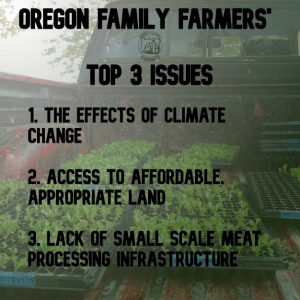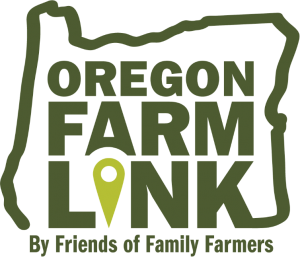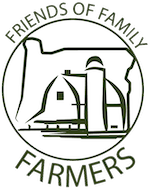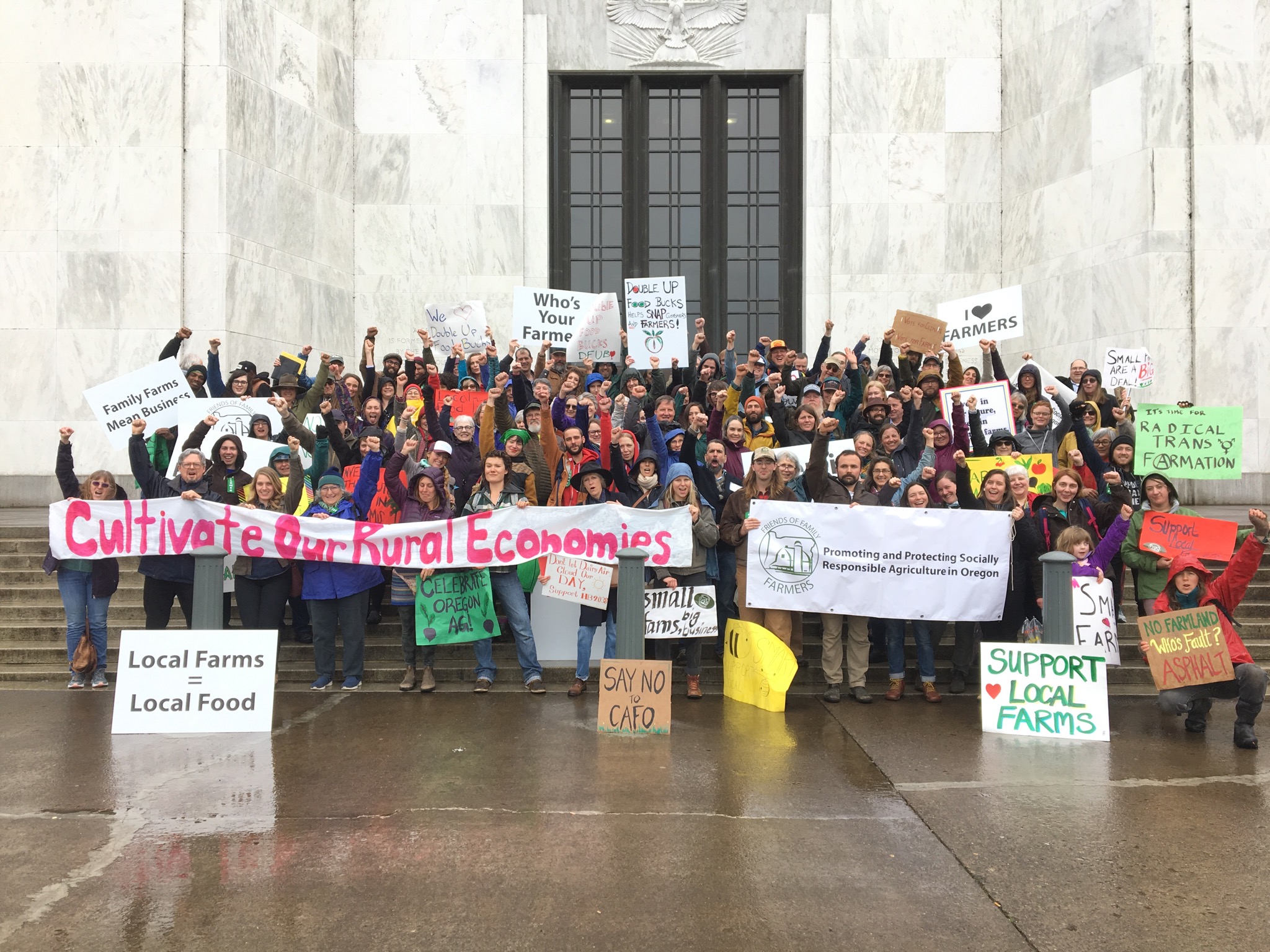Democracy School – Election Recap
This is the final email in Friends of Family Farmer’s Democracy School Series. We will recap the measures FoFF endorsed this year and briefly discuss our policy priorities for the 2021 session.
The dust hasn’t even settled on the historic 2020 election that shattered voter turnout records and will inevitably be one for the books. While many races are still undecided as this is written, the good news is that both measures FoFF endorsed passed with wide margins. For all election results, visit the Secretary of State’s election tracker.
- Measure 107 Campaign Finance Reform for Fair and Honest Elections – passed!
FoFF looks forward to the largely-unchecked influence of dark money in Oregon politics ebbing as campaign contribution limits are eventually implemented. This is a long-overdue first step, though it will be some time until there is a truly level playing field.
- Measure 20-312 Permanent funding mechanism for Lane County’s Upper Willamette Soil & Water Conservation – passed!
FoFF hopes more jurisdictions take Lane County’s lead and prioritize on-going funding for Soil and Water Conservation Districts (SWCDs), which are on the front line of helping communities invest in clean water and healthy soils. Now, more than ever, we need to ensure there is technical support and grant money to regenerate soils and biodiversity in Oregon.
FoFF’s Policy Priorities
While the final composition of the next legislature is still being determined, there is a chance that Oregon could be in for more of the same partisan strife in 2021 as there was in 2019 and this year, 2020, in which only three bills made it through the process. Hopefully our legislators will find a way to better work together as Oregon grapples with the ongoing effects of multiple crises. The word around Salem is that if legislation is not related to COVID-19, wildfire, racial justice and police accountability, or the budget, it likely won’t move this coming session, and if legislation has a cost attached to it, also known as a “fiscal,” it is highly unlikely to be taken up at all.
FoFF will continue to monitor the legislature and use any windows of opportunity to remind decision makers that smart policies that help diversified small farmers who feed local communities can be a way to increase economic recovery, especially in rural areas, as well as address climate change. Small farms can be a big part of the solution to many of Oregon’s woes and it is our responsibility to keep pushing this message!
And how does FoFF select our policy priorities? To start, we have our baseline document, the Agricultural Reclamation Act (ARA), which lays out goals necessary for a system of agriculture that benefits family-scale farming in Oregon. FoFF looks at this as our “marching orders” so to speak. Since we can’t work on everything in the ARA at once (nor is all of it politically feasible, unfortunately), we have to prioritize what we focus on in any given year.
FoFF also looks to feedback from our Listening Sessions and surveys, which we conduct around the state biennially (every other year) to fine tune our priorities. For obvious reasons, this year we had to rely only on the survey, the results of which you can access here . Of the hundreds of farmers who responded to the survey this year, the top three issues were:

Finally, to choose the top priorities for our advocacy efforts, we consider external factors such as how favorable the legislature is to our issues; what other groups are working on the same or similar issues with whom we can join forces; and are there legislative champions who will make sure our legislative concept(s) get hearings and are taken seriously.
Even as we are facing one of the most unknown legislative sessions to date, FoFF has taken all the above factors into consideration and has settled on the following priorities for 2021:
- Fighting Factory Farms. A mega-dairy moratorium and continued agency and legislative advocacy around the effects of the factory farm system of agriculture on small farmers, rural communities and the environment. FoFF has long been a part of the Stand Up to Factory Farms Coalition and is doing this work with a diverse group of stakeholders.
- Improving access to Meat Processing. The legislature passed HB 4206, a state meat inspection program, during a Special Session this summer and FoFF will be advocating for long-term funding to ensure the program contains the requisite technical assistance and infrastructure improvements needed to really make it a success. FoFF is looking for creative ideas for potential public and private partnerships to help fund this eventual program, so please be in touch if you have input.
- Creating an Oregon Organic Action Plan. FoFF is participating in a workgroup established by the Senate Environment and Natural Resources Committee during the 2020 Session to create an Organic Action Plan. In broad strokes, the workgroup, organized by the Oregon Organic Coalition, will create a plan, and corresponding legislation, that will include recommendations to:
- leverage organic education and research opportunities;
- expand organic trade and market facilitation; and
- improve financial and direct assistance offerings to increase farm and business performance.
- Pushing for Strong Climate Policy. In March 2020 Governor Brown signed Executive Order 20-04, the Oregon Climate Action Plan (OCAP). EO 20-04 establishes science-based greenhouse gas (GHG) emissions reduction goals. EO 20-04 also makes general directives to many state agencies and commissions to help facilitate GHG emissions reductions goals, as well as to consider and integrate climate change, and climate change impacts, into their planning, budgets, investments, and policy making decisions. FoFF is actively monitoring these agencies and commissions, making public comments, and submitting testimony to ensure that small farmers are part of the solution, and that Oregon has the strongest climate policy possible.

Sadly, because of COVID-19, we’ve had to cancel our 2021 Farmer Day of Action at the Capitol. As we draw closer to the legislative session and there is more clarity about what it will actually look like, we’ll reach out with more information about other ways you can advocate for small farmers and a healthy local food system.
In addition to FoFF’s legislative advocacy, our regular programming also aims to help small farmers and ranchers. Oregon Farm Link helps those looking for access to land, and the Oregon Pasture Network supports the growth of pasture-based farming in our state.
Thank you for your enthusiastic support of our Democracy School series! In the past, FoFF has hosted candidate forums and while we truly missed connecting with you during this election season, your comments and feedback were a happy substitute.
Please don’t hesitate to reach out with questions or suggestions about FoFF’s policy priorities. Our Policy Director can be reached at amy@friendsoffamilyfarmers.org



